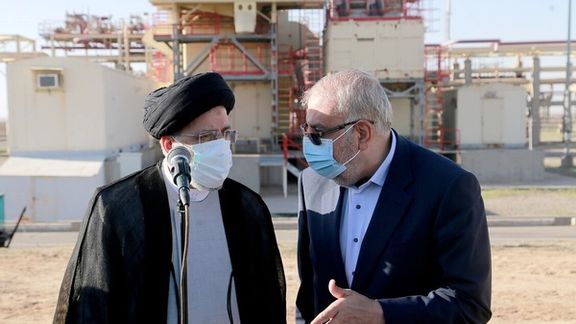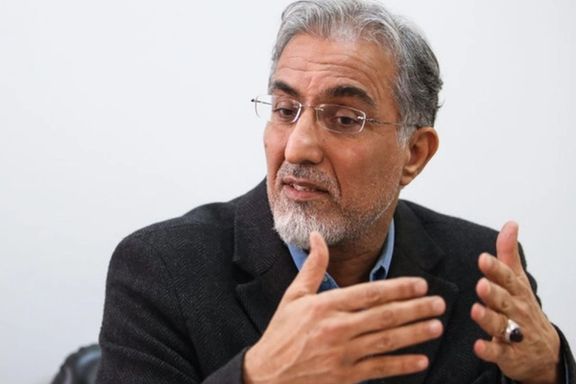Iranians Ask Why Economy Deteriorates If Oil Revenues Are Up

Iranians wonder what has happened to tens of billions of dollars in recent oil revenues, when the economy weakens, the currency keeps falling, and prices rise.

Iranians wonder what has happened to tens of billions of dollars in recent oil revenues, when the economy weakens, the currency keeps falling, and prices rise.
With the deterioration of the economic situation in recent days and the danger of a social explosion, even state-controlled media publish interviews and comments about the mystery of oil revenues and higher taxes collected by President Ebrahim Raisi’s government.
According to official statements by the president and the oil minister, Iran has earned at least $45 billion in the past 12 months from higher exports and prices of crude oil and refined oil products. This is double of what Iran managed to earn in 2020, without any visible impact on the economy.
Hossein Raghfar a professor of economics in Zahra University in Tehran told the Iranian Labour News Agency, ILNA, that the money is being taken out of Iran by corrupt officials.
“The question now is why the impact these revenues are not being felt,” Raghfar said, and insisted, “One of the main reason is flight of capital from the country.”
He did not provide any details or evidence for his claim of massive capital flight, but a recent scandal surrounding the family of the parliament speaker traveling to Turkey for luxury shopping and reportedly buying two expensive apartments there for $1.6 million, speaks volumes about corruption and money taken out of the country by the elite.

A Turkish nationwide news channel, TGRT, not only confirmed claims by Iranian sources that Mohammad Bagher Ghalibaf (Qalibaf) family purchased apartments but reported that 500 luxury units in the same high-rise complex have been purchased by families of Iranian officials. That would mean around $500 million of illicit funds taken out of the country and invested in just one location in Turkey.
Raghfar said that if government claims of exporting around one million barrels of crude per day are true, Iran can expect around $100 billion of revenue from its traditional financial lifeline. That kind of money should stop the fall in the value of rial, which reached a four-month low on Saturday trading at 285,000 to the US dollar. Just in late 2017, before the United States pulled out of the nuclear agreement known as JCPOA, the rial was trading at 33,000 to the dollar – an almost ninefold fall in less than five years.
The former head of the central Bank, Abdolnaser Hemmati, issued a short video on Sunday saying that the Raisi administration can be called “The sultan of printing money.” Raisi has been claiming that he stopped his predecessor’s practice of generating money for the government by printing more banknotes, but Hemmati said that according to new central bank date the government printed close to $6 billion additional money from August to March, which fuels inflation.
Raghfar also drew attention to large quasi-government companies not paying any taxes, and instead receiving subsidies. These companies are run by political appointees who are friends or family members of top government officials and can easily share funds with others in their circle.
He went to say that currently all major government institution are controlled by conservative (loyal to Supreme Leader Ali Khamenei) and the Raisi government has no excuse of disunity in failing to improve the economy. Why the government is eliminating subsidies for essential commodities, raising the price of bread fivefold, he asked, and said it is not clear what is happening to public wealth.
“Iran’s economy is hostage to various mafia interests, who spend a lot of [public] money and embezzling huge funds,” Raghfar said.